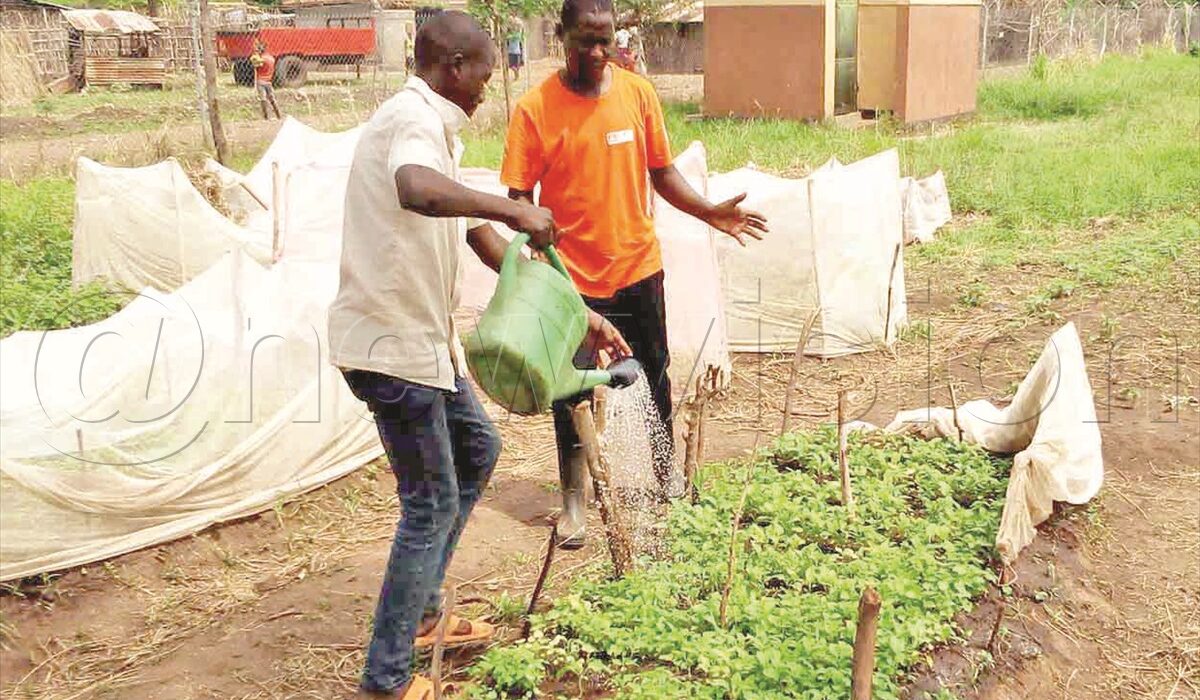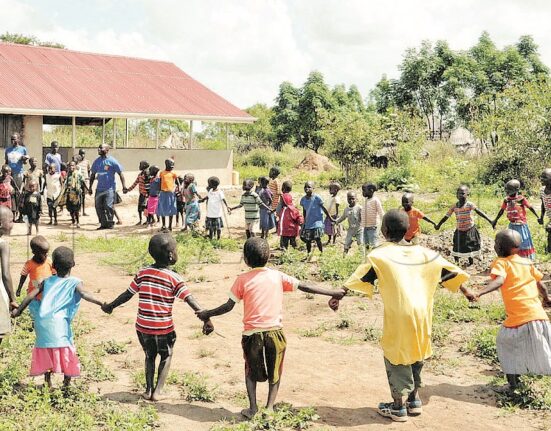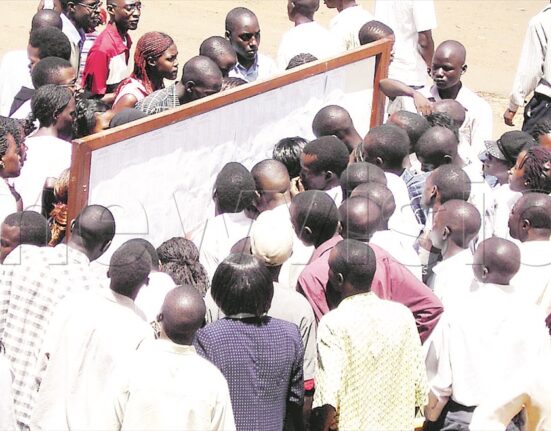(This article was first published in the New Vision on May 4, 2022)
By Andrew Masinde
Born in 1988, in Bukwo district, Innocent Masanja is a teacher in charge of welfare, farming, medical, first aid and games master, as well as a senior man teacher at Namalu Mixed Primary School in Nakapiripirit district.
He started his career at Nkozi University Preparatory School in Mpigi district, where he taught for two years.
“Whenever we had a lesson about physical features, like mountains or water bodies, I would take the pupils to see them, so that they knew what they looked like,” he says.
He also offers slow learners remedial lessons after classes to keep them on par with others. He also urges other teachers to allocate extra time to assist slow learners.
In 2012, when he was transferred to Namalu Mixed Primary School, he was shocked to learn that it is located near the weekly market and local brew drinking joints.
“There was no fence, so learners would abandon classes and go to drinking joints,” he says.
The school had a boarding section for only boys. He observed that many girls would report to school once a week, while others would be taken out of school for early marriages.
Masanja asked the headteacher to provide a boarding section for girls. The school dedicated one classroom block to the cause and Masanja was made the head. Fifteen girls were admitted to the boarding section. Today, there are 200 girls in the boarding section.
In 2013, for the first time, a girl, Joyce Teko, scored first grade in the Primary Leaving Examinations.
Teko hails from Nakapiripirit and used to struggle to come to school because of the terrain. She was among the first to be enrolled in the boarding section and Masanja supported her with scholastic materials.
“I worked hard and I was the best that year, with aggregate12. I am now at the university pursuing a bachelor’s degree in biological science,” she says.
She adds that Masanja lobbied the Forum for African Women Educationalists for a scholarship that sustained her in secondary school.
School Security
When the school started a girls’ boarding section, they faced many cases of thieves breaking in and taking property and abducting girls for marriage. Some sources say some female teachers were also raped.
Masanja lobbied the sub-county leadership to erect a school fence, which was achieved through NUSAF 3. “Security and sanity returned to the school, and the population shot up to 1,300 pupils from 500,” he says.
Computer Skilling
In 2015, the Government introduced e-registration of candidates, but the majority of parents, teachers and pupils were green about computers.
Masanja, using his laptop and smartphone, supported all schools in his sub-county to register candidates. He also offered his phone to teachers to research on the Internet. Later, the school procured a computer and Masanja became the school secretary. He also started teaching pupils and teachers computer skills.

COVID-19 Pandemic Interventions
Masanja is in charge of sensitising the pupils about preventing the spread of COVID-19. He also took learners who are 18 and above for vaccination.
During the COVID-19-induced lockdown, Masanja engaged with Save the Children, a non-governmental organisation, to offer vocational training.
They introduced bakery training for girls at no cost. They were also trained in making reusable sanitary pads.
He also traversed communities, distributing pads to all girls in his school.
Extracurricular Activities
Masanja has trained pupils in the basics of first aid in case they are injured during sports.
He is also a coach for football and the patron of the WASH club, where he trains learners on how to protect the environment and themselves against germs. He also organizes sporting activities in the community where he sensitises them about good hygiene, among others.
Because of his efforts, the school has dry compost latrines. Masanja shared with a friend from the US about the school’s challenges, one of which was sewage disposal. The friend raised funds for the school to construct the latrines.
He is also in charge of the debate and music, dance and drama clubs.
Water
The school also had no water source. So, learners would move long distances to fetch it. Masanja engaged Welthungerhilfe Uganda, which provided them with a water source with a solar-powered pump. The community also benefited as they were offered a tap to fetch water at no cost.
Welthungerhilfe Uganda also built a washroom for girls, saving them from bathing in the open.
Agriculture
Masanja also realised that day-scholars used to go home for lunch and never returned for the afternoon lessons.
He introduced a garden to produce food to feed the children in school. He wrote a proposal to Andres Food International, requesting support.
“They give vegetable seeds and the children eat the harvest, which has reduced the cases of malnutrition,” he says.
Andres Food International also offered to plough seven acres, where they will plant orange-fleshed sweet potatoes starting the next season.
“We will also multiply two acres of potato vines that will be supplied to parents with children in the school and 200 other community members,” he said.
Geoffrey Owiny Arims, the deputy headteacher of the school, says, with the project, learners will have a constant supply of food.
Over 42 pupils are now also managing small gardens in their homes.
Becoming School Nurse
Since the school had no nurse, Masanja approached the district health inspector, requesting first aid training. After this, he offers first aid.
“This is not my profession, but the health facilities are far. So, I give them first aid. In cases of serious issues, I take them to the hospital, which is 7km away,” he says.
He has also created a space where girls can rest when they are ill as they wait to get help from a female teacher.
“We also started basic tests for girls when they report to school. We screen for pregnancy and other issues. This is to help us know how best to handle a student in case any of the tests return positive,” he says.
He also supports the school in guidance and counselling, especially regarding HIV. He also works with the health centre to help girls get cervical cancer examinations.
Who is Masanja?
Masanja studied at Kaptererwa Primary School and St Joseph Girls’ Secondary School, both in Bukwo district. He completed Senior Four in 2007 and joined St John Bosco Core PTC in Nyondo, Mbale district for a Grade Three teaching certificate
Others Speak
Geoffrey Owiny Arims
Masanja is always coming up with successful innovations. “He is a blessing to Karamoja and if he continues with that spirit, the region will grow both academically and food security-wise.
Christine Nandutu, the Nakapiripirit district sports officer
Masanja is committed to his work and supports girls to stay in school.









Leave feedback about this